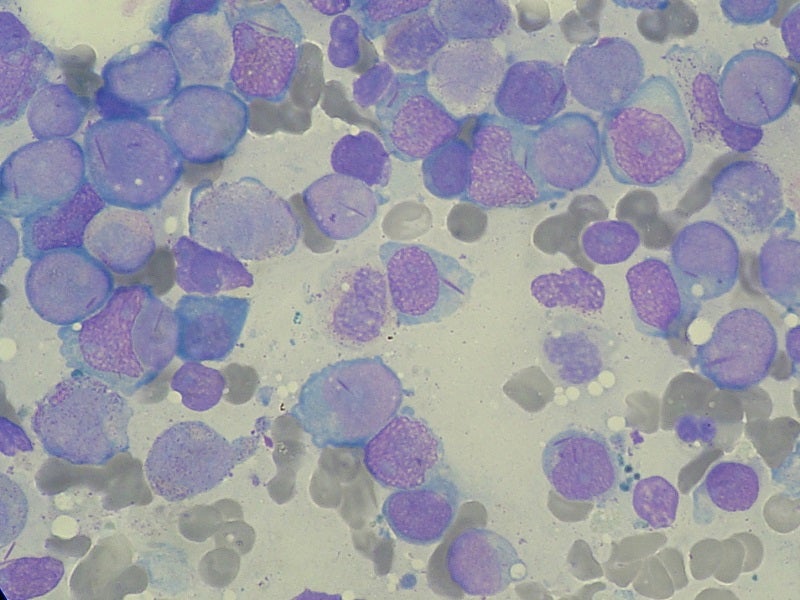
Priothera has enrolled the first participant in the Phase IIb/III MO-TRANS global trial of mocravimod in acute myeloid leukemia (AML) patients undergoing allogeneic haematopoietic cell transplant (HCT).
The placebo-controlled, double-blind, pivotal study has been designed for evaluating the safety and efficacy of mocravimod as an adjunctive and maintenance therapy for these patients.

Discover B2B Marketing That Performs
Combine business intelligence and editorial excellence to reach engaged professionals across 36 leading media platforms.
It will assess the relapse-free, as well as overall survival, of two dose levels of mocravimod against a placebo.
The company is commencing the study in the US, Israel, Europe, and in additional Asian and Latin American countries.
The sphingosine 1 phosphate (S1P) receptor modulator, mocravimod’s tolerability, safety, and efficacy have been evaluated in Phase I and Phase II trials in many autoimmune indications.
It is being developed to improve the curative potential of allogeneic HCT.

US Tariffs are shifting - will you react or anticipate?
Don’t let policy changes catch you off guard. Stay proactive with real-time data and expert analysis.
By GlobalDataIn an early clinical study, the new investigational drug demonstrated a clinically relevant benefit to haematologic malignancies patients undergoing allogeneic HCT.
Priothera chief medical officer Elisabeth Kueenburg said: “This MO-TRANS global Phase IIb/III study builds on pre-clinical and clinical proof of concept studies, which demonstrated mocravimod’s ability to improve survival outcomes for patients with haematological malignancies requiring allogeneic HCT.
“The mode of action has been well-established in autoimmune indications, but never in haematology. Mocravimod has the potential to be a first-in-class therapy in maintaining the graft-versus-leukemia effect while preventing graft-versus-host disease, one of the most serious complications of allogeneic HCT.
“We expect this trial to deliver important clinical data supporting the registration of mocravimod in this indication.”
The company expects to receive topline data from the Phase IIb/III MO-TRANS global study in 2025.





